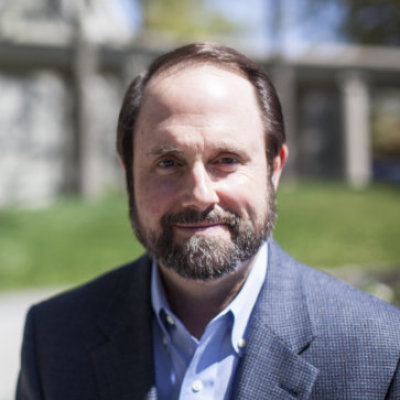Hallmark Channel announces Christmas movie with gay couple; offering hope to a desperate world

The Christmas House will premiere on the Hallmark Channel on Sunday, November 22. It features a storyline in which a gay couple tries to adopt their first child.
A spokesman said of the channel, “Our movies are rooted in warmth and positivity, meaningful connections, family gatherings, and seasonal traditions—a winning formula we hope will bring our millions of viewers much-needed levity and holiday cheer at the end of a tough year.”
The Hallmark Channel, like other media outlets, is in business to make a profit. Its executives clearly believe that a movie featuring a gay couple will be popular and thus profitable.
In other words, their announcement says more about us than it says about them.
“The strongest, bravest person I have known”
Justice Ruth Bader Ginsburg lay in state Friday in the US Capitol’s Statuary Hall. She was the first woman to do so, and the first Jew as well.
As a female and a Jew, she faced enormous obstacles growing up. A sign of the times: her mother graduated from high school when she was only fifteen; instead of furthering her education, she was forced to get a job as a garment worker to pay for her brother’s education at Cornell University.
Ruth’s mother was diagnosed with cancer when Ruth was thirteen and died four years later. Ruth had been selected to speak at her high school graduation but stayed home with her father to grieve her mother’s death.
In Senate testimony at her Supreme Court confirmation hearings, Ginsburg called her mother “the bravest, strongest person I have known.” She added: “I pray that I may be all that she would have been, had she lived in an age when women could aspire and achieve, and daughters are cherished as much as sons.”
Attacks on Amy Coney Barrett have begun
In a radio interview this week over my new book on civility, I was asked this honest question: Why should Christians try to engage a culture that so clearly rejects us and our values?
A case in point is the furor already circling President Trump’s possible nomination tomorrow of Amy Coney Barrett to the Supreme Court. One accusation is that she was a member of a religious group that inspired the dystopian novel The Handmaid’s Tale. (This claim has been debunked repeatedly but persists online.) Other attacks are forming around her Catholic beliefs regarding moral issues, as occurred during her confirmation hearings for the US Court of Appeals for the Seventh Circuit in 2017.
Whether you are a Democrat, Republican, or independent, and whether you are a Catholic or a Protestant, you should be concerned about antagonism toward a candidate’s personal faith. Such attacks clearly violate the Constitution’s guarantee that “no religious test shall ever be required as a qualification to any office or public trust under the United States” (Article VI, Clause 3). And they illustrate the fact that Christian faith commitments are increasingly countercultural.
Assuming Judge Barrett is the nominee, it will be important to watch the degree to which her personal faith becomes a focus of attack in the coming weeks. If it does, we should compare the way her faith is treated with the media’s approach to Joe Biden’s Catholic faith.
How to “survive tragedy and trauma”
Given the animosity of these days, the interviewer’s question is relevant: Why try to engage with such an antagonistic culture? I’d like to offer two biblical answers.
One: We are called by God to take his word to the world, regardless of how the world responds.
You know the Great Commission to “make disciples of all nations” (Matthew 28:19). Jesus did not limit our commission to nations that welcome our witness. Rather, our mission is as relevant in China as it is in Canada. We are as called to North Korea as we are to South Korea.
God measures success not by outcomes but by obedience.
Two: Responding to adversity with hope is best for the world, but also for us.
You and I are God’s salt of the earth and light of the world (Matthew 5:13–16). However, what our Lord does through us he also does in us. Being proactively gracious positions us to experience grace even as we share grace.
In Jonathan Sacks’ magisterial Morality: Restoring the Common Good in Divided Times, he describes conversations with a number of Holocaust survivors. He notes: “They were among the strongest, most life-affirming people I have ever met. For years I wondered how they were able to survive at all, having seen what they saw and known what they knew. They had lived through the deepest darkness ever to have descended on a civilization.
“Eventually I realized how they had done it. Almost without exception, when the war was over, they focused with single-minded intensity on the future. Strangers in a strange land, they built homes and careers, married and had children, and brought new life into the world.”
Consequently, here is his advice: “To survive tragedy and trauma, first build the future. Only then, remember the past.”
From gathering for a prayer march and a prayer event in Washington, DC, to making a highly anticipated movie about the resurrection of Jesus, to responding to wildfires with resources and intercession, Christians are taking hope to a desperate world.
How will you join them today?
Originally posted at denisonforum.org
Adapted from Dr. Jim Denison’s daily cultural commentary at www.denisonforum.org. Jim Denison, Ph.D., is a cultural apologist, building a bridge between faith and culture by engaging contemporary issues with biblical truth. He founded the Denison Forum on Truth and Culture in February 2009 and is the author of seven books, including “Radical Islam: What You Need to Know.” For more information on the Denison Forum, visit www.denisonforum.org. To connect with Dr. Denison in social media, visit www.twitter.com/jimdenison or www.facebook.com/denisonforum. Original source: www.denisonforum.org.



























